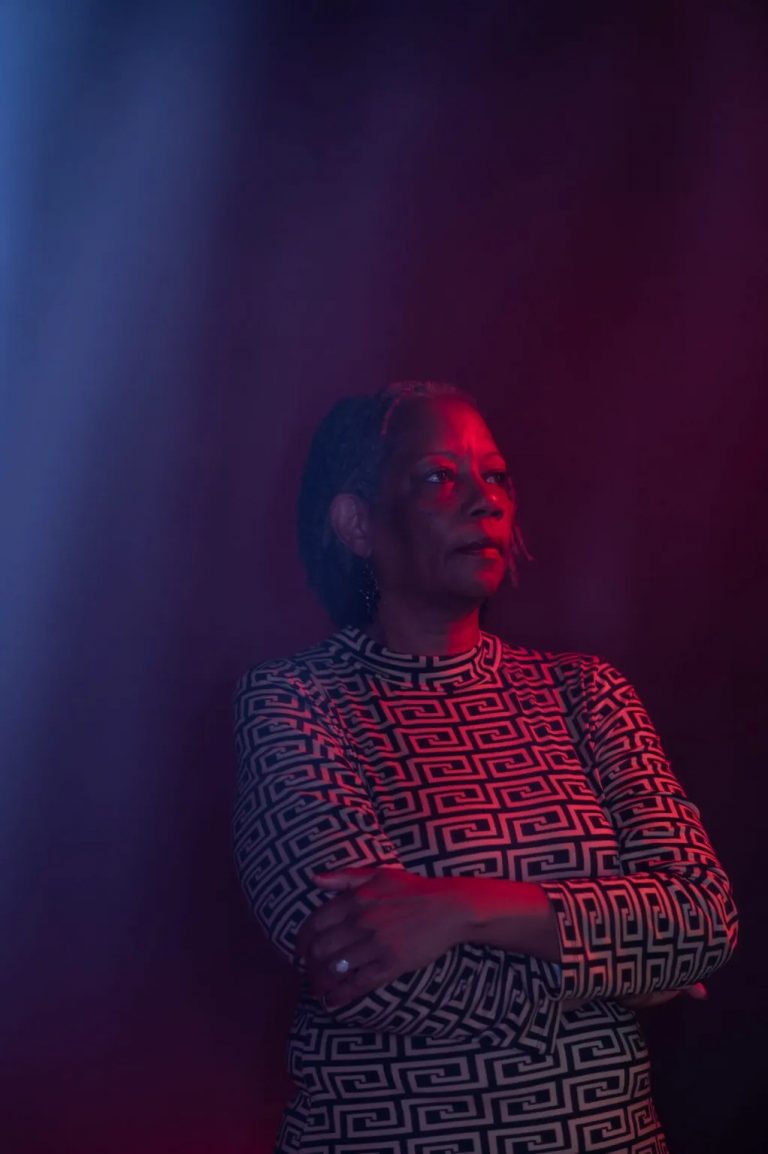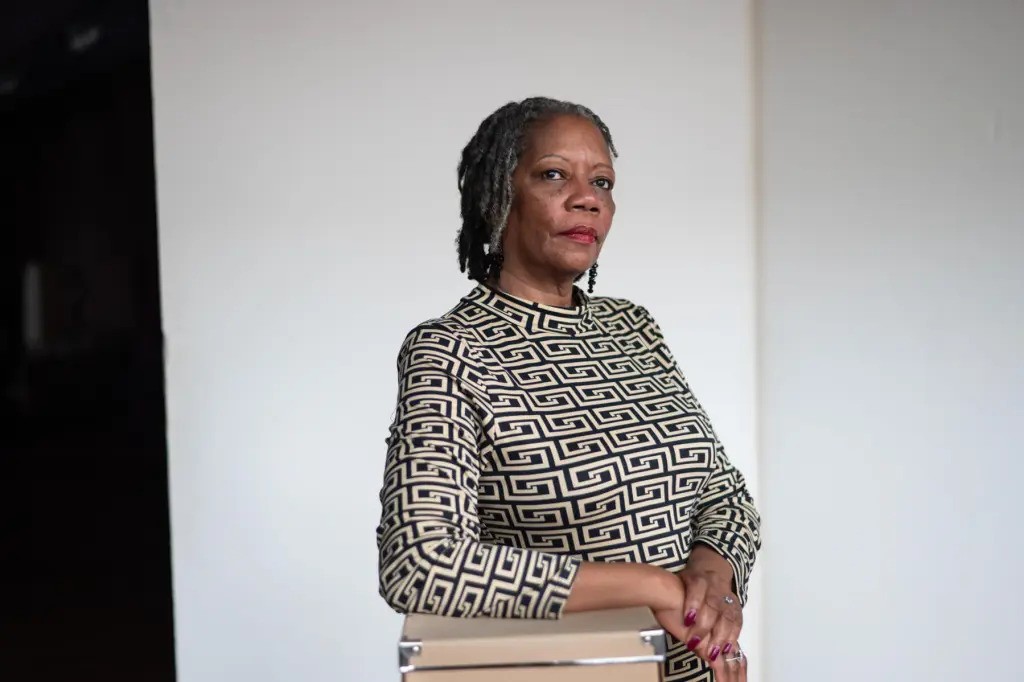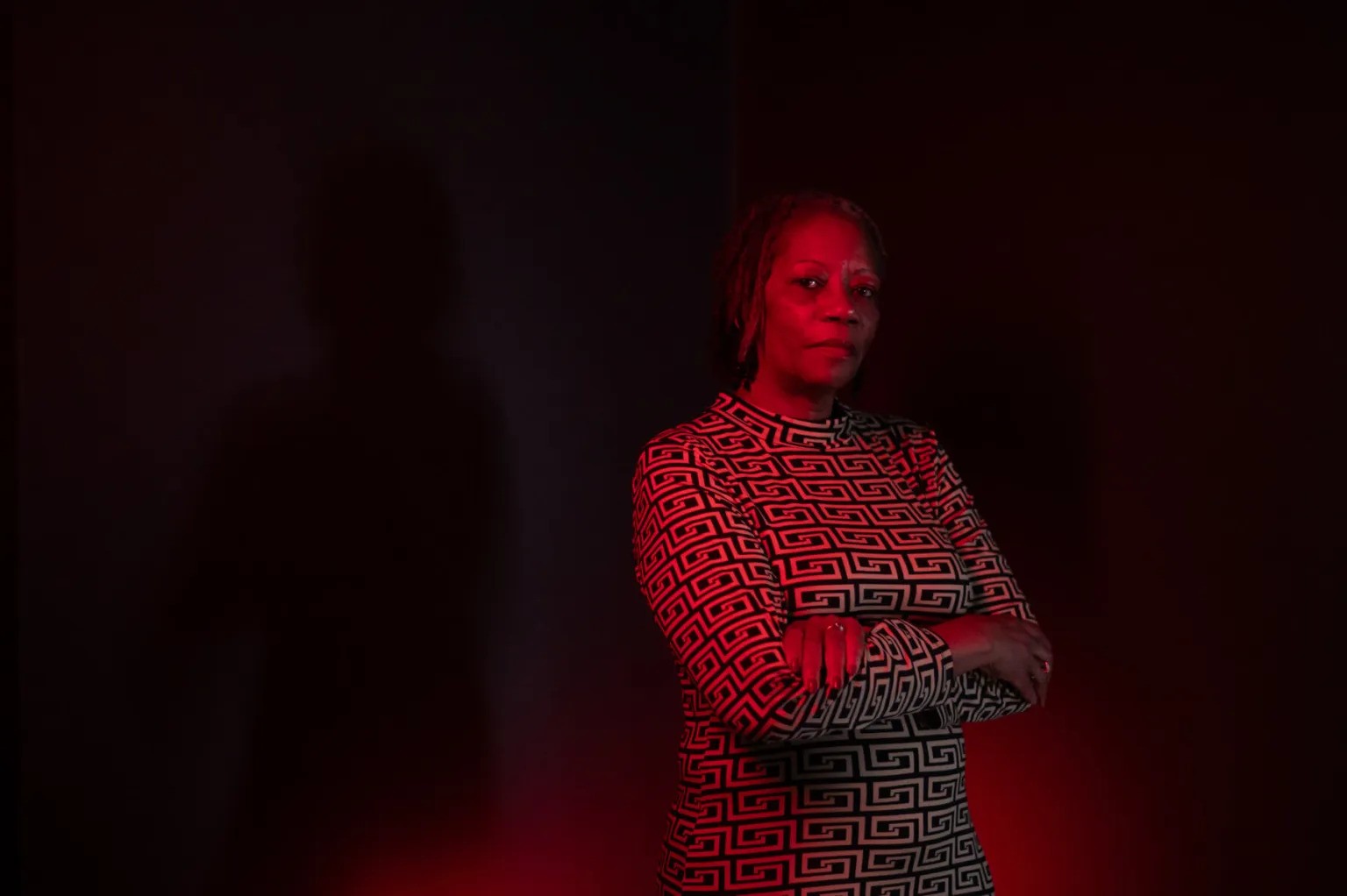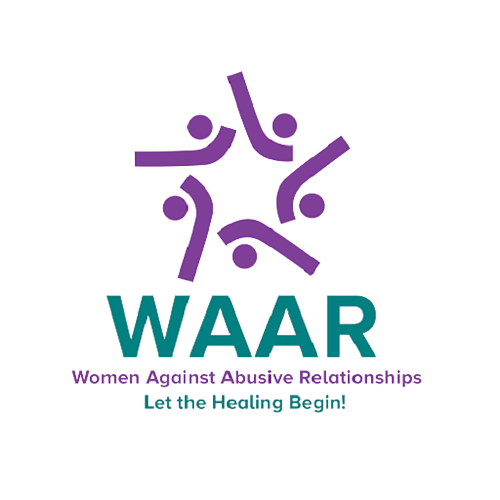Abused from childhood to adulthood, I heal through advocacy for other survivors
Roxanne Epperson’s teen dating violence workshops at Schenley High School led to the educational and advocacy work she does to this day with Women Against Abusive Relationships. She was photographed on Wednesday, July 17, 2024, in the Strip District. (Photo by Stephanie Strasburg/PublicSource)
At the tender age of 4, my life took a traumatic turn with verbal abuse from a parent that lasted throughout my teen years and beyond, and sexual assault by a “boyfriend,” which was a one-time occurrence until it wasn’t.
When I was 14, I decided to date a 19-year-old who hung out on the stoop of our apartment building. Kids hanging out on stoops was a thing back then in the summer of 1969. I ignored my mother, who tried to prevent me from seeing him because of his age. I ignored her just as he ignored my cries of “No!”

Roxanne Epperson of Wilkinsburg, founder and CEO of Women Against Abusive Relationships [WAAR], photographed on Wednesday, July 17, 2024, in the Strip District. (Photo by Stephanie Strasburg/PublicSource)
The abuses continued and included multiple rapes, a teen dating violence experience, a sexual assault by a jitney driver, heartbreak by a cheater and nearly dying at an abuser’s hands around my throat in 1993. He strangled me until I blacked out. When I came to, there was a whole new Roxanne.
I immediately kicked him out of my home. I wrote a poem to God, thanking him for being there when I needed him. And I started learning about domestic violence resources.
In 2001, I began conducting workshops at Schenley High School for ninth graders about teen dating violence. The next thing I knew I was running a program called Women Against Abusive Relationships [WAAR], which was born in 2004 at Magee Womens Hospital (now UPMC Magee Womens Hospital).
My trauma lasted for 31 years until I realized I did not deserve the pain, abuse and disrespect I was receiving. It has been a phenomenal journey to turn the pain endured from childhood through adulthood into a means of helping women heal from their trauma.
I sometimes wonder how or why I did not fall apart after suffering such painful events. If I had done so, I probably would not be doing the work I’m doing today, empathizing and guiding those who have gone through the same or are going through it now.
Putting my pain to work
My compassion for those who have experienced domestic violence and sexual assault is deep because I wholeheartedly understand their pain. That’s why I founded WAAR.
Initially, WAAR provided a series of empowerment workshops designed to foster self-awareness, self-acceptance, self-love and self-sufficiency among domestic violence survivors. These vital sessions aimed to mitigate the risk of future abusive relationships and support long-term healing. Our workshops addressed various issues, including self-esteem building, managing holiday stress, heart health and themed topics such as Sexual Assault Awareness Month, Mental Health Awareness Month, HIV/AIDS Awareness Month and Domestic Violence Awareness Month.
Recognizing the power of the arts to bring healing, we integrated artistic expression into our programs, offering participants a creative outlet to process their experiences and emotions.
To date, we have proudly served over 2,500 women in Allegheny County, empowering them to reclaim their lives and build brighter futures.
In partnership with the Women’s Center and Shelter of Greater Pittsburgh and POWER, the Pennsylvania Organization for Women in Early Recovery, WAAR recently launched a new initiative called the After Shelter Kare [ASK] Program. Our tagline is “Ask for Help, We Got Your Back!”
ASK is a program that assists participants with getting their lives back on track after experiencing an abusive relationship, whether or not they are residents of a shelter, by addressing some of the social determinants of health, which are “… the conditions in the environments where people are born, live, learn, work, play, worship and age that affect a wide range of health, functioning, and quality-of-life outcomes and risks.”
Our offerings include physical fitness assessments, wellness assessments, nutrition counseling and in-person and virtual workout activities.
Our Healthy Family Lifestyles services promote family bonding and well-being through adult, infant and child CPR training and family field trips. Additionally, we offer self-paced Microsoft 365 training and referrals to job readiness programs and entrepreneurship resources.
Our parenting program, Parents “R” Protectors, addresses vital topics to support and empower parents. These topics include nurturing and attachment, knowledge of parenting for child and youth development and parental resilience.
In fall 2024, we plan to launch a virtual private peer support group called Healing Space WAARiors. This innovative program will feature multiple groups based on age and culture, along with courses on relationships (both healthy and unhealthy) and financial literacy.
The treatment of women as a second class
Over the years, as I have reflected on my trajectory in the world of violence prevention against women and girls, I’ve often wondered why some men think of women as second-class citizens. Although I am an optimist, I do not believe domestic violence is going to end because it is too ingrained in our society, which is very disturbing to me. But we must continue efforts to eradicate it.
The experiences of abuse and violence I faced are deeply rooted in historical and cultural norms where patriarchal structures encourage the systemic subordination of women. Cultural traditions perpetuate the belief that men are superior, influencing behaviors that disrespect and marginalize women. This was evident in the way perpetrators treated me, seeing me not as a person but as someone they could dominate and control.
To help our members identify and respond to these patterns, we educate them on how these norms are reinforced through various societal channels. By understanding these root causes, they can begin to identify and challenge the underlying beliefs that contribute to domestic violence.

Roxanne Epperson of Wilkinsburg, founder and CEO of Women Against Abusive Relationships, photographed on July 17, in the Strip District. Her message to other survivors of abuse is, “Tell it, and do not be ashamed of someone else’s behavior.” (Photo by Stephanie Strasburg/PublicSource)(Photo by Stephanie Strasburg/PublicSource)
Our program provides education on gender equality, healthy relationships and the impact of abuse. We teach practical skills for responding to and intervening in situations of abuse, including recognizing warning signs, offering support and knowing where to seek help.
We are creating a crucial supportive community. Our peer support groups allow individuals to share their experiences and learn from one another, fostering a sense of solidarity and collective empowerment.
From a young age, boys are often socialized to be dominant and assertive, while girls are taught to be submissive. This internalization of gender hierarchies was reflected in my early relationships, where my abusers saw themselves as naturally superior and entitled to control me. My 19-year-old “boyfriend” ignored my protests and violated me, seeing my resistance as irrelevant because his desires took precedence. I recently found a letter he wrote to me when he was incarcerated. He states how much fun we had in 1969. I was dumbfounded when I read those words. I’m not sure what he’s talking about because that’s the year that he raped me. Did he not know it was rape? I have no recollection of having fun with him at any time.
Many of the men who abused me were driven by the need to assert power and control. The abuser who strangled me until I was unconscious epitomized this need for dominance. His actions were not just about physical violence but about maintaining control over me, reinforcing the dangerous dynamics of power in abusive relationships.
Women also often face economic disadvantages, which can reinforce their vulnerability to abuse. This structural inequality usually traps women in cycles of violence and dependency.
To help break that cycle for our ASK members, we have partnered with Huntington Bank to provide financial literacy training, UPMC Pathways to Work for potential jobs and other entities for workforce development opportunities.
In my case, I did not lack the resources and support to leave my abusive situation. First, he lived with me in my home, so he had to go. Second, those who would have supported me did not know what I was going through. I was too ashamed to tell anyone until I did.
Today, one of my messages to whoever will listen is, “Tell it, and do not be ashamed of someone else’s behavior.”
Addressing the issue
To combat the disrespect and marginalization of women that can lead to violence, we must:
- Promote gender equality through education and awareness campaigns
- Challenge and change cultural norms and stereotypes that devalue women
- Implement and enforce laws and policies that protect women’s rights and promote equal participation in all aspects of society
- Encourage men to reflect on their behaviors and attitudes and become allies in the fight for gender equality
- Women must love themselves unconditionally, which will mitigate the chances of perpetrators entering their lives.
Understanding the root causes of these behaviors is the first step in creating a more equitable and respectful society.
Countless women endure unimaginable pain, their voices silenced by fear and their stories hidden behind closed doors. My journey from childhood abuse to adult trauma, and my mission to assist at least one million women and girls globally to heal from the abuse they’ve endured, is a testament to a determined human spirit and my refusal to remain silent any longer.

